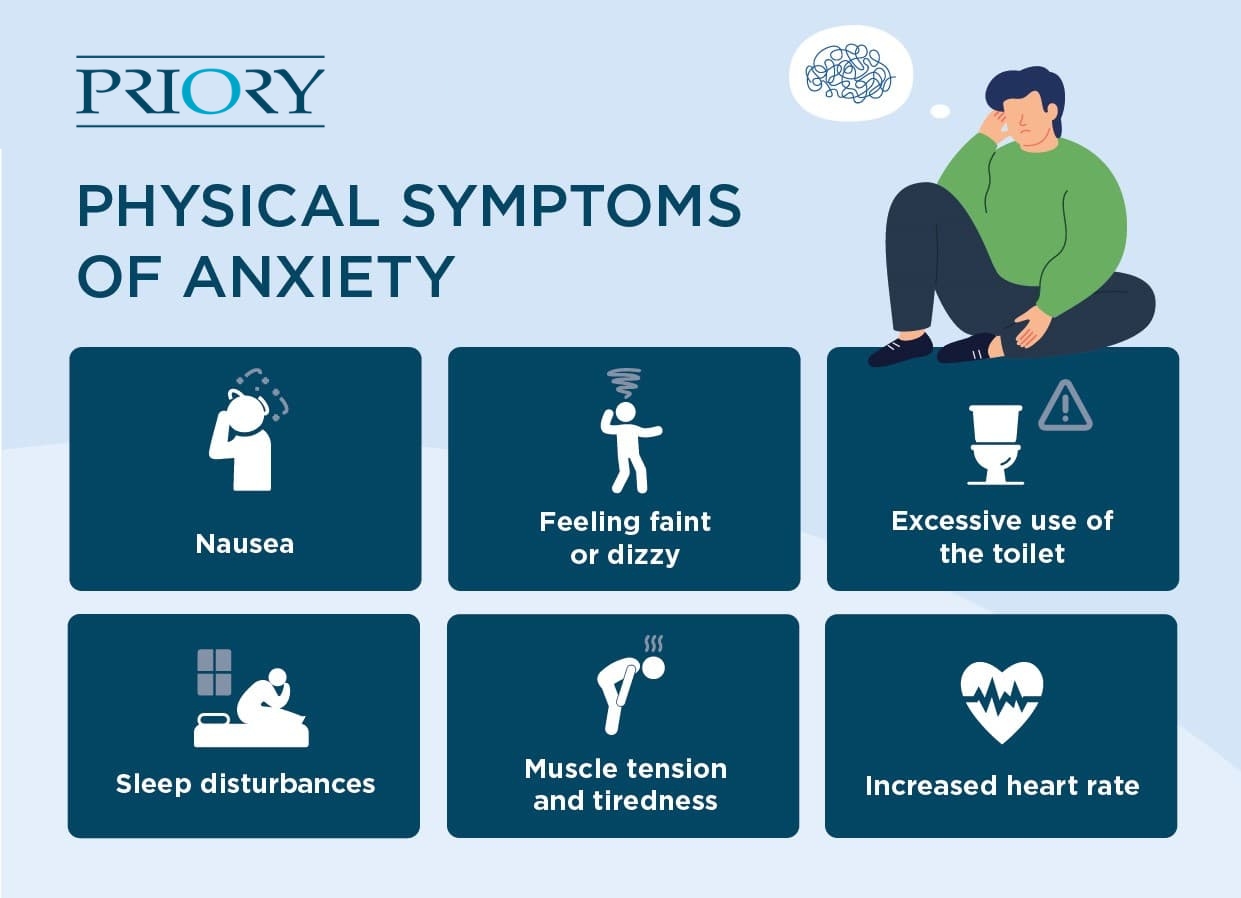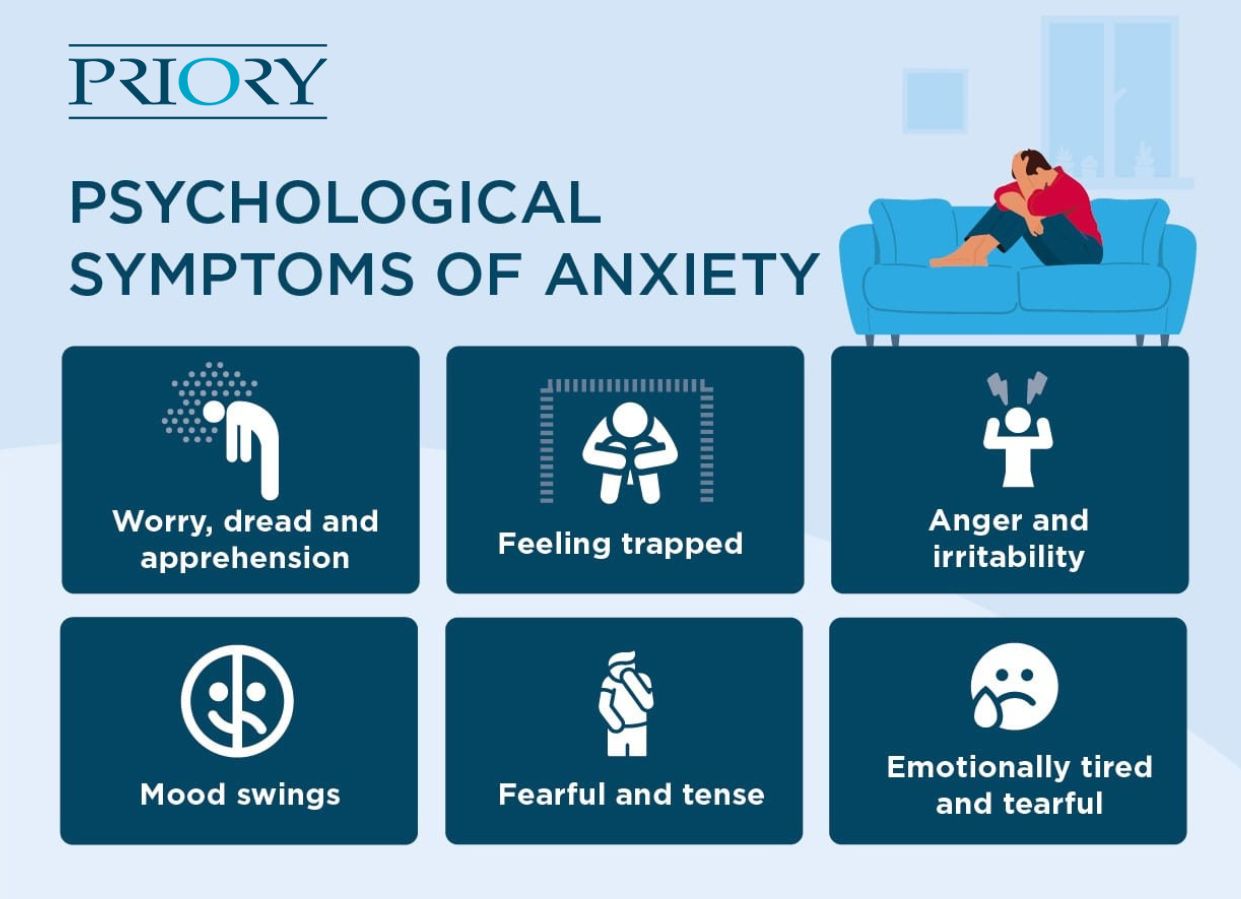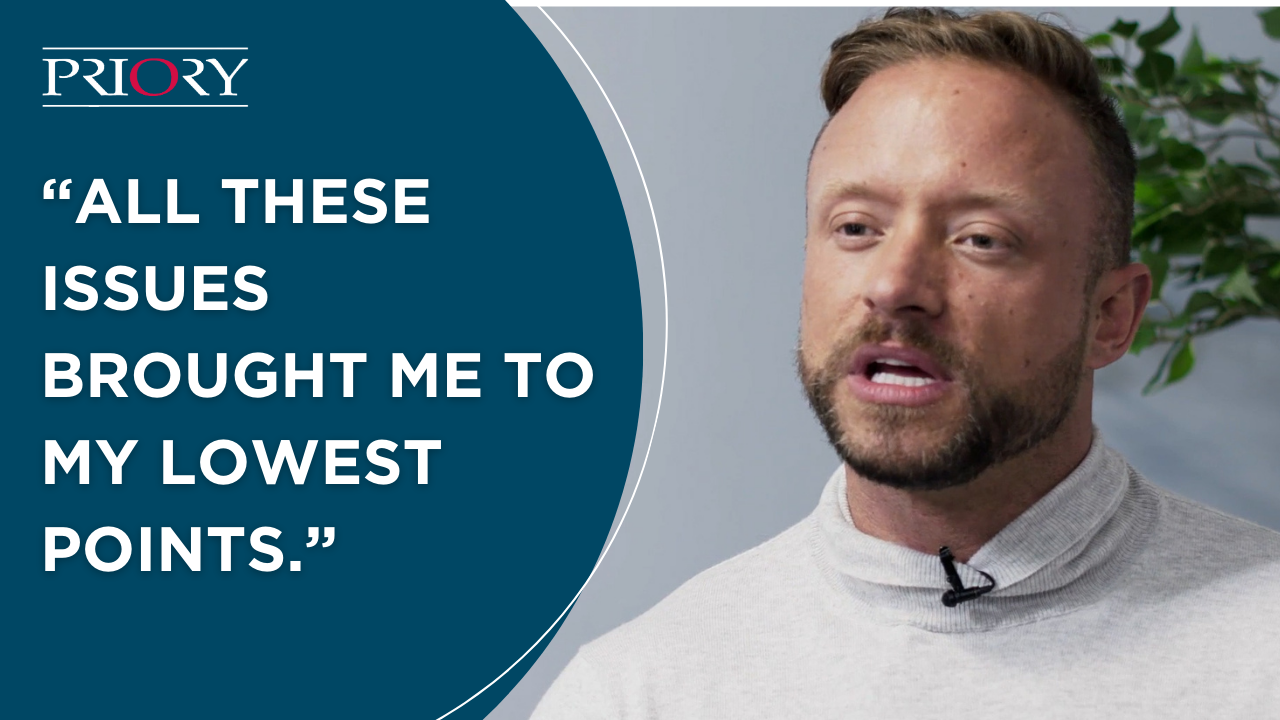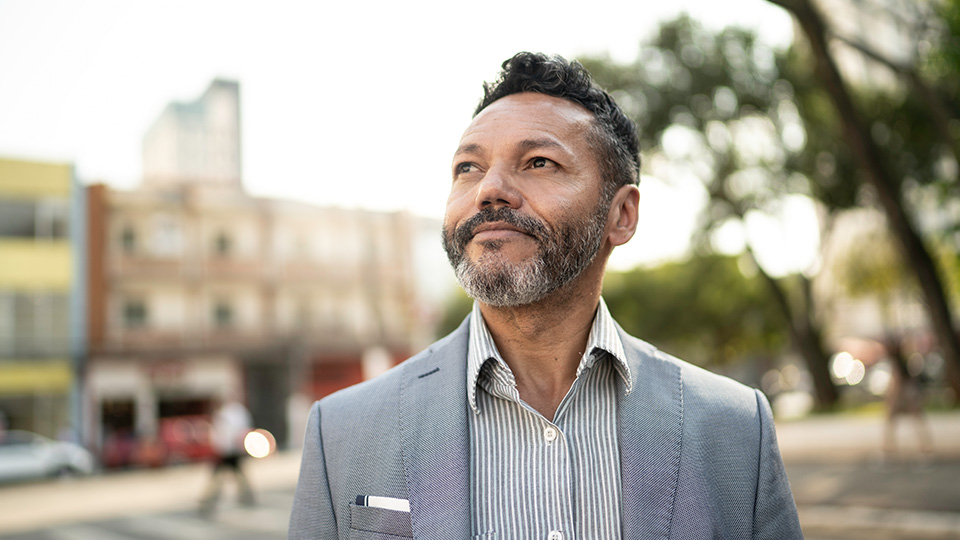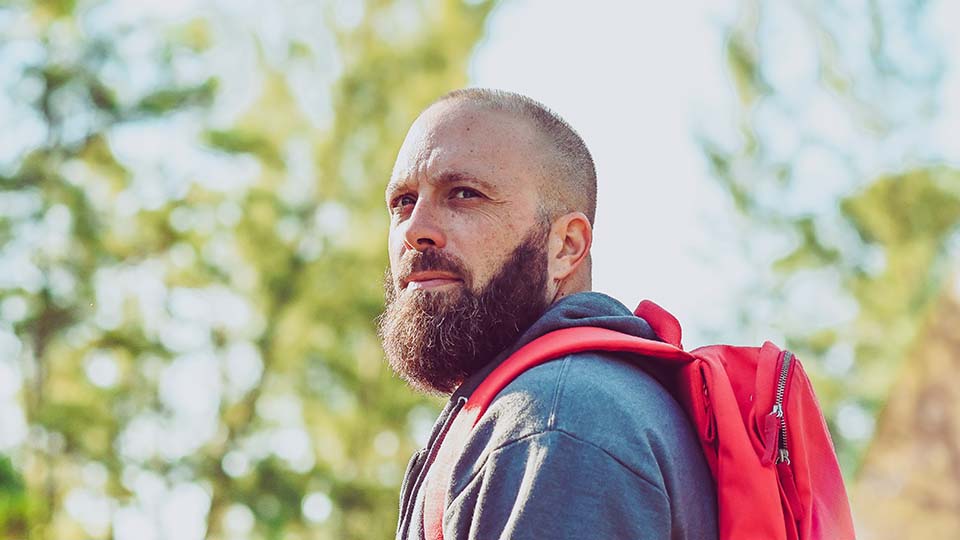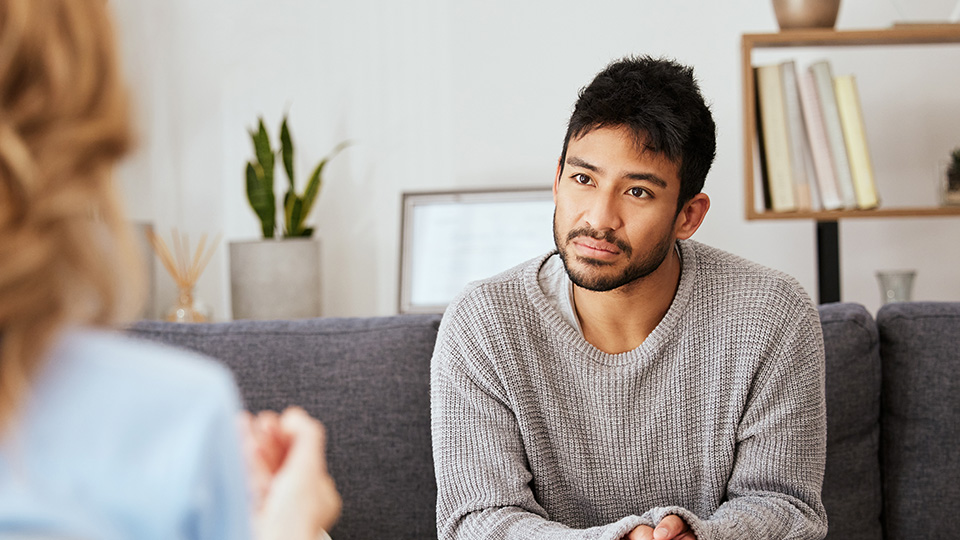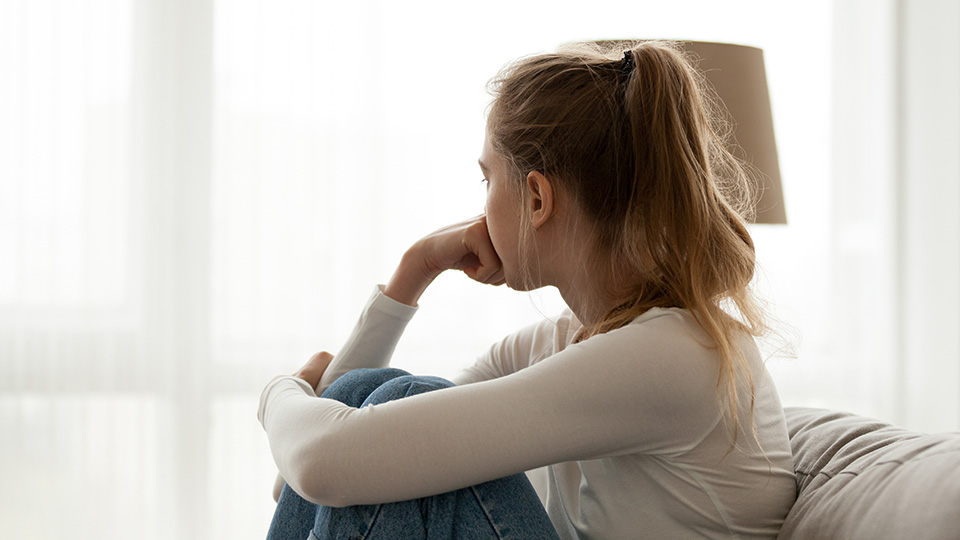What to do if you’re struggling
Even if things don’t feel urgent, seeking help early can make a significant difference and help prevent symptoms from getting worse. If you’re unsure what you’re experiencing, this online anxiety test may help you reflect on your symptoms.
You might choose to speak to your GP, or access support directly through a private provider. At Priory, we offer evidence-based anxiety treatment that’s tailored to your individual needs and circumstances. You can read more on our anxiety treatment page.
Anxiety is treatable, and it’s entirely possible for you to feel more in control of your day-to-day life again, enjoying the things you used to love. You don’t have to cope with the way things are. With the right support, you can significantly improve your quality of life and thrive beyond your current challenges.
Practical self-help strategies for managing anxiety symptoms
While professional support can be a key part of recovery, some self-help techniques can help reduce the impact of anxiety in everyday life. These can be useful alongside treatment, or as a starting point if you’re not ready to seek formal help.
Self-help strategies to manage anxiety can include:
- Breathing exercises – paying attention to your breath can help you access your parasympathetic nervous system state (known as rest and repair). Slowing down your breathing pattern and taking deeper breaths into your stomach can significantly help calm physical symptoms of anxiety. Try these breathing techniques for anxiety
- Progressive muscle relaxation – a method of releasing tension by working through the body step by step. We often don’t realise how much physical tension we’re holding until we bring awareness to it
- Mindfulness and grounding techniques – practices that help bring focus back to the present moment, reducing spiralling thoughts. These might include meditation, mindful walking or taking regular time in silent stillness
- Physical activity – movement, even gentle exercise such as stretching, walking or slow flow yoga, can support a regulated nervous system
- Sleep support strategies – creating a calming evening routine can make a huge difference to anxiety. Try to limit screen time in the few hours before bed, avoid eating in the couple of hours beforehand, and cut back on caffeine – ideally avoiding it altogether after midday
- Regulation through cold temperatures’ – a cold shower, cold water on the face, or drinking an ice cold glass of water can support the nervous system resetting, and releasing positive endorphins. A simple but effective strategy for alleviating a panic attack or anxiety surge.
- Relaxation tools – explore a wider range of relaxation techniques for anxiety
These techniques aren’t a replacement for professional care, but many people find them useful and feel more empowered to manage their symptoms. These small actions can be more powerful than you think and can help you build emotional resilience.
You don’t need to wait for things to get worse before talking to someone. If anxiety already feels like it’s getting in the way of your life, it may be time to reach out. There are experienced professionals available to help you, so the sooner you take that next step, the sooner things can start to get better.




